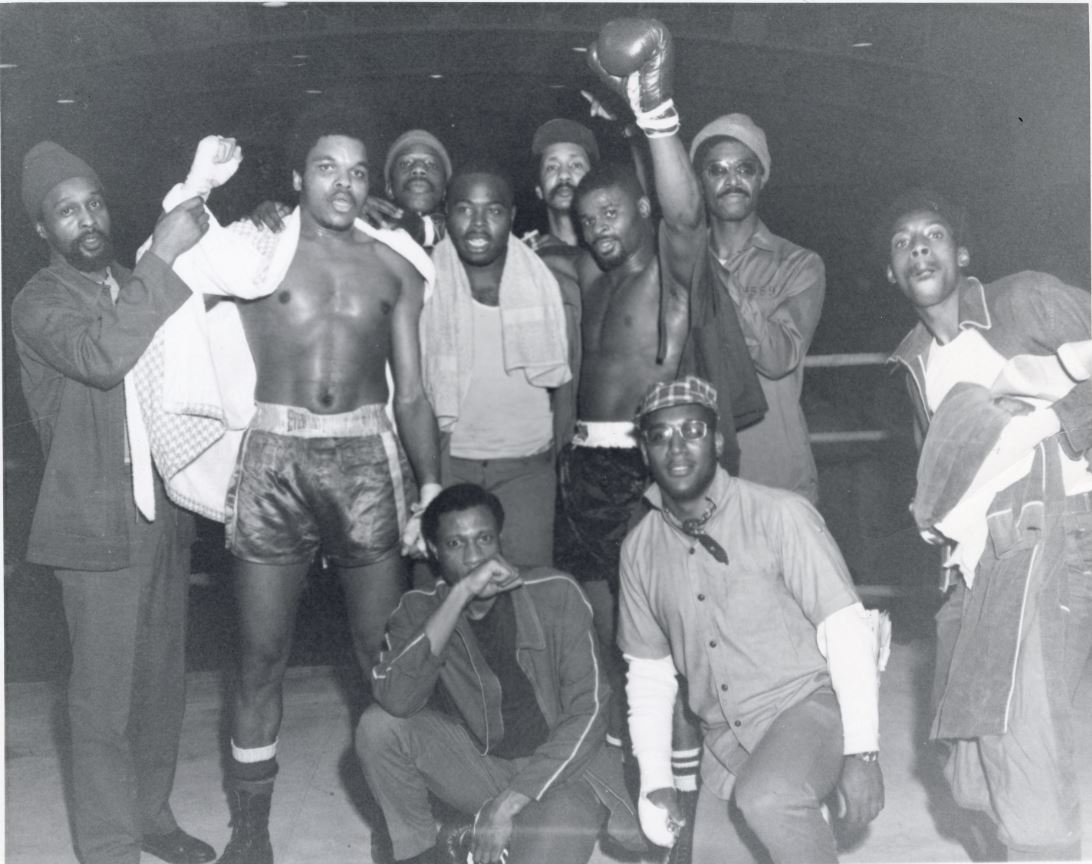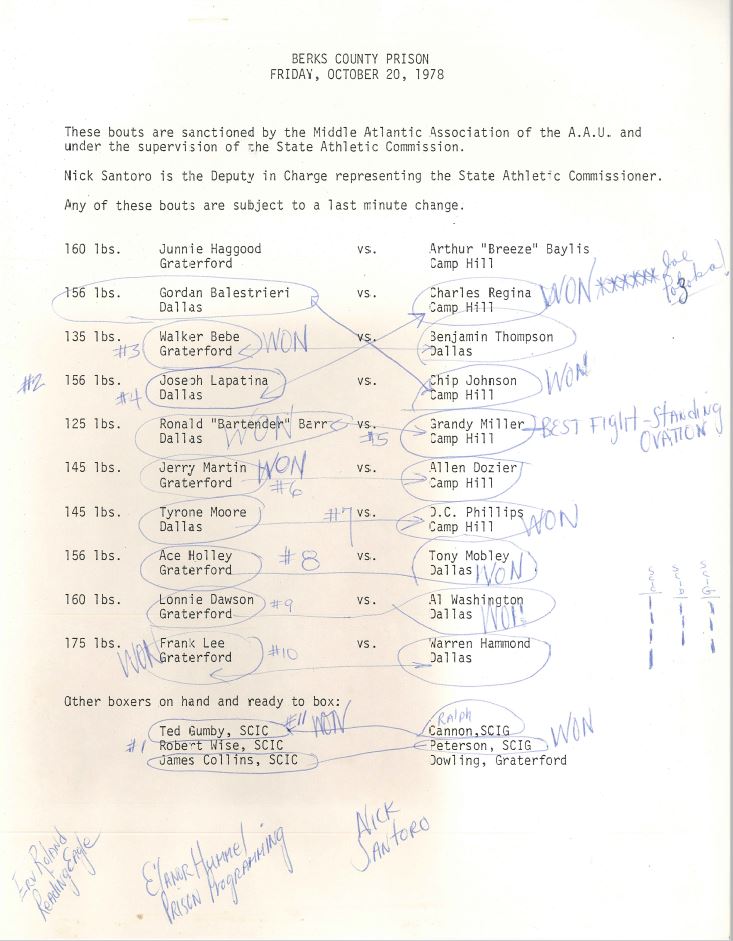 On a rainy night in 1978 in Lewisburg, Union County, 1,400 men crowded into a boxing arena. In the ring, they watched Clarence Miller take on the reigning 125-pound state champ, Ronald "Bartender" Barr. Of the 10 matches that Saturday, this was the only championship matchup and the crowd was dazzled by their thrilling fight. Narrowly defeating Miller, Barr came out on top and was voted the outstanding boxer of the night.
On a rainy night in 1978 in Lewisburg, Union County, 1,400 men crowded into a boxing arena. In the ring, they watched Clarence Miller take on the reigning 125-pound state champ, Ronald "Bartender" Barr. Of the 10 matches that Saturday, this was the only championship matchup and the crowd was dazzled by their thrilling fight. Narrowly defeating Miller, Barr came out on top and was voted the outstanding boxer of the night.
These men were no ordinary boxers. They were all members of a new rehabilitative prison boxing program that operated in the 1970s and early 1980s, and the match was the first live sporting entertainment the federal penitentiary in Lewisburg had ever hosted.
The 1970s were difficult times for Pennsylvania's prisons. New laws and sentencing policies were putting Pennsylvanians behind bars at rates higher than ever before. Officers struggled to work with a dangerously disproportionate staff-to-inmate ratio. Prisons were aging and in disrepair, making living conditions difficult and hazardous for most inmates.
Remembering the recent 1971 Attica prison riot in New York and several outbreaks of violence in Pennsylvania facilities, Department of Corrections officials looked for ways to ease tensions and maintain order among nearly 10,000 inmates and staff.
The boxing program was the brainchild of William Robinson, who had just been appointed Commissioner of Corrections. An amateur boxer in his younger days, Robinson hoped that boxing would provide a physical and emotional outlet and prevent confrontations between frustrated inmates and officers.
In just a few years more than 1,400 inmates across the state took part in the boxing program. The best boxers from each state correctional institution were even invited to travel and compete against each other in exhibition matches held everywhere from the Allentown State Fair to Indiana University of Pennsylvania.
 One of the most successful fighters to come out of the state prison boxing program was Bernard Hopkins, who would later win multiple world championships in the middleweight and light heavyweight classes. Incarcerated from 1983 to 1987, the Philadelphia native discovered boxing in his SCI Graterford cellblock. "When I saw a guy murdered for a lousy pack of cigarettes, something in me snapped," he later said, "I knew that I had to be responsible for turning my life around." Hopkins found a trainer and mentor in cellblock neighbor Michael Wilson, a former prison boxing champion himself. Wilson's rigorous training regimen and Hopkins' experience boxing at SCI Graterford prepared him for what would be one of the longest and most successful professional boxing careers of all time.
One of the most successful fighters to come out of the state prison boxing program was Bernard Hopkins, who would later win multiple world championships in the middleweight and light heavyweight classes. Incarcerated from 1983 to 1987, the Philadelphia native discovered boxing in his SCI Graterford cellblock. "When I saw a guy murdered for a lousy pack of cigarettes, something in me snapped," he later said, "I knew that I had to be responsible for turning my life around." Hopkins found a trainer and mentor in cellblock neighbor Michael Wilson, a former prison boxing champion himself. Wilson's rigorous training regimen and Hopkins' experience boxing at SCI Graterford prepared him for what would be one of the longest and most successful professional boxing careers of all time.
The boxing program was short lived and quietly ended in the mid-1980s. Even in its heyday boxing could never have solved all of the problems in Pennsylvania's prisons. Overcrowding, dangerous living and working conditions, and budget issues were simply too much for the boxing program to knock out on its own. Nevertheless, officials did believe that it helped keep prison assaults and misconducts down by more than 50 percent.
Equally important, boxing helped restore some dignity to participants. Like other prison superintendents SCI Pittsburgh's James Howard wrote that boxing gave the state's prison community support and exposure. "Most importantly," he said, "this exposure has been in a positive nature. The citizens of the Commonwealth have seen that institutions are not like those portrayed in movies or on TV screens and that our facility houses individuals who are human beings."
Historical records from the DOC Boxing Program were recently found at SCI Camp Hill and were sent to the State Archives in Harrisburg. Items like newspaper clippings, photos, and letters from fans will now be preserved for future generations.
If you have any historical records that tell the story of the Department of Corrections, please contact your agency Record Coordinator, Launa Kowalcyk (717) 728-4058 or Archivist Tyler Stump (717) 783-9874.